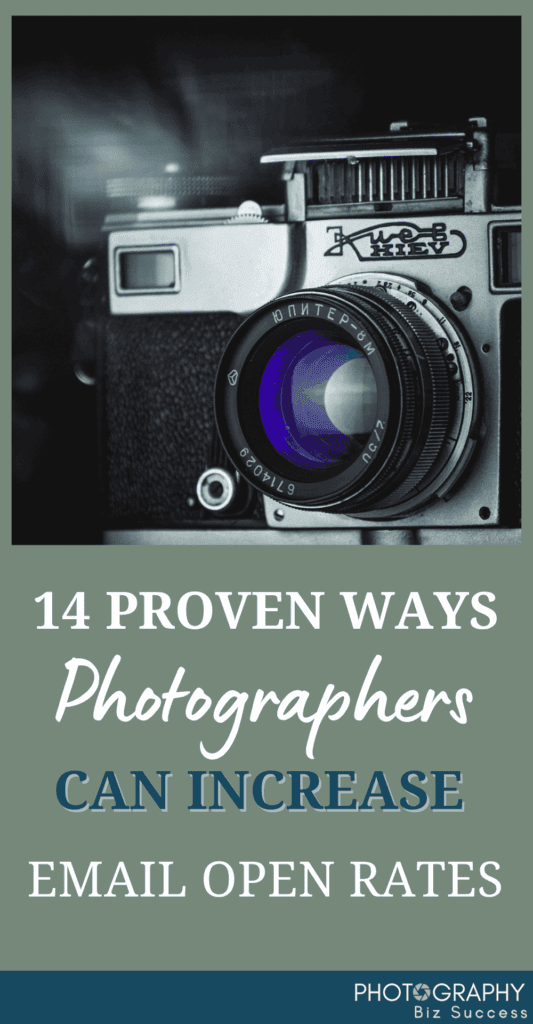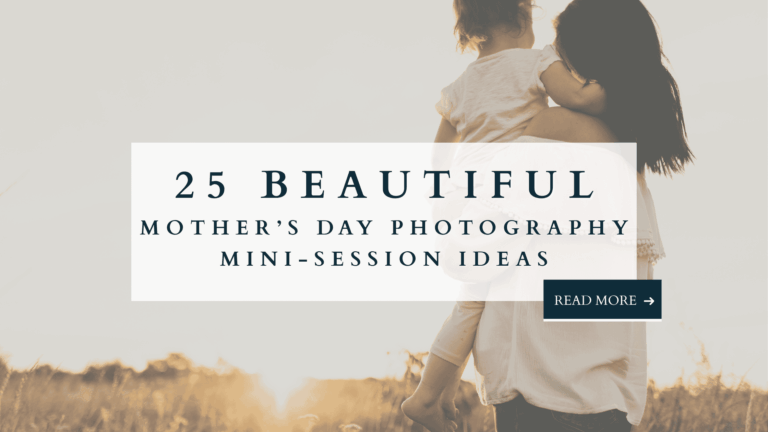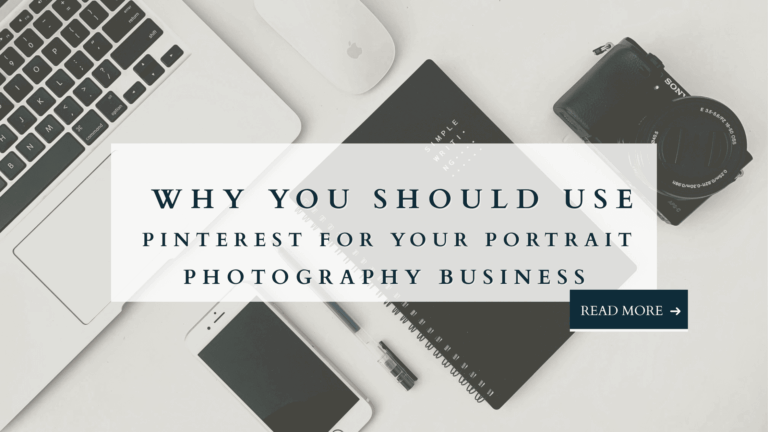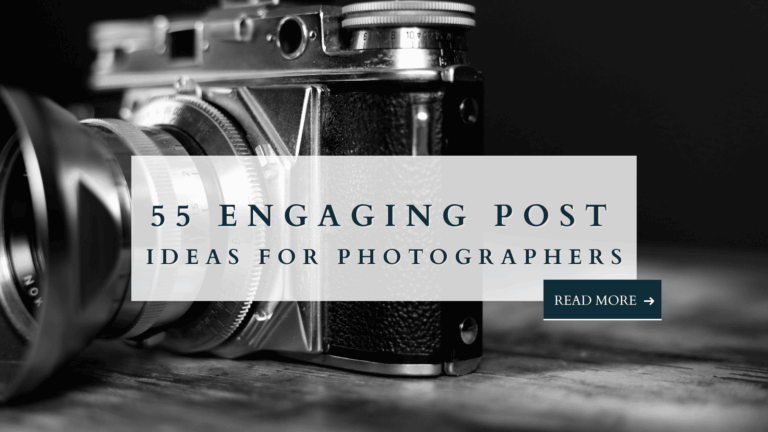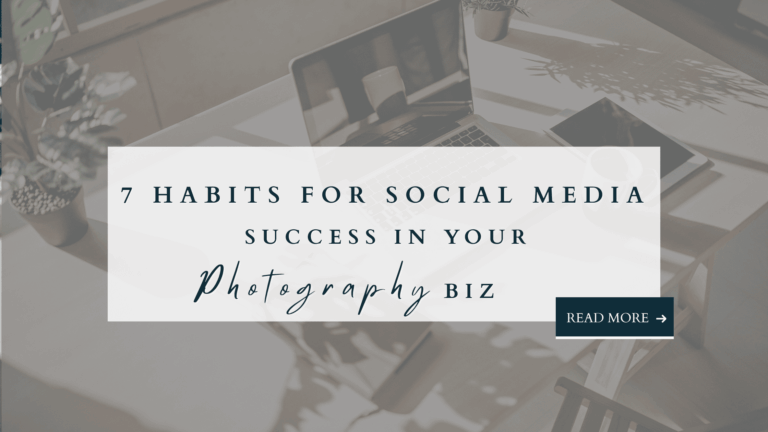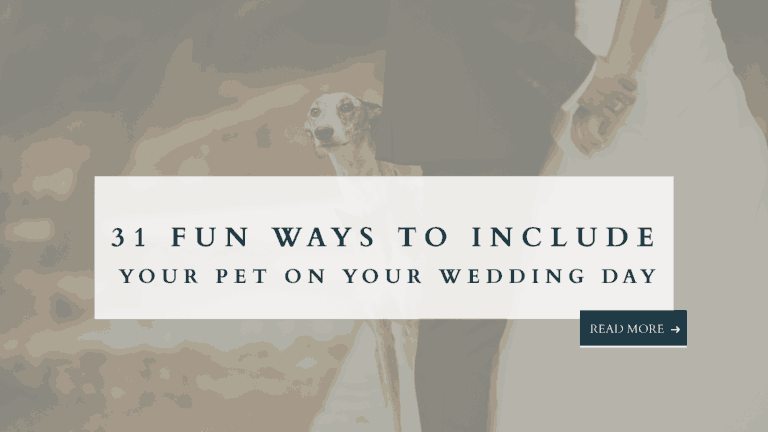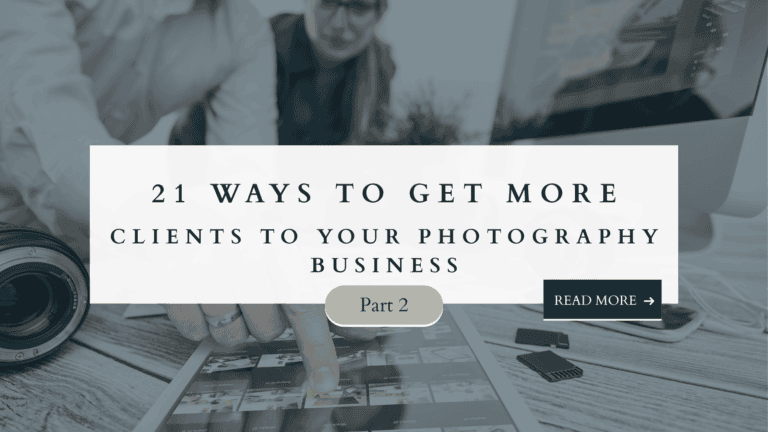If you’re building a photography business, growing your email list and knowing how to increase email open rates should be one of your top priorities.
Unlike social media, your email list belongs to you. You’re not at the mercy of unpredictable algorithms or sudden platform changes.
- It’s direct.
- It’s personal.
- And it’s powerful.
But here’s the thing, if no-one’s opening your emails, your message isn’t reaching anyone. That’s why it’s so important to understand how to increase email open rates.
And it’s not just about you. Open rates are influenced by several factors beyond your control, like:
- Where your subscribers are located.
- What kind of photography business you run.
- Whether your emails are personal updates or promotional offers.
Once you understand how these pieces fit together, you can start making small, smart changes that have a big impact.
Want to grow your photography business with less overwhelm and more direction?
🤍 Easy-to-action marketing tips, advice and strategies.
💙 Exclusive offers on digital tools.
🧡 Straight-talking advice from someone who’s been there.
Sign up below and start making progress today. 👇🏻
This blog, 14 ways to increase email open rates, ended up much longer than I originally planned, but I didn’t want to cut down on value. So I’ve split it into two parts to make it easier to digest, and to make sure you get every tip, strategy, and takeaway I promised.
So, what exactly is an email open rate, and how do you calculate it?
It’s simple: Open rate = (Number of emails opened / Number of emails delivered ) x 100.
For example, if you send out 2oo emails and 50 people open them, your open rate is:
(50/200) x 100 =25%
The good news? Most email platforms like Kit, Mailerlite or Flodesk do this for you automatically.
But, it’s always useful to understand how it works, especially when you’re reviewing your stats or comparing different campaigns. Knowing the basics gives you more confidence and control when you’re trying to figure out what’s going well, or what needs adjusting.
1. Craft Subject Lines That Make People Click.
Your subject line is the very first impression, and in many cases, it’s the deciding factor on whether your email gets opened or ignored.
As a photographer, you’re already used to thinking visually. You know how important that first glance is. Your subject line works the same way, it’s the cover image of your email.
So, what makes a good one? It’s clear. It sparks curiosity. It feels personal, like it was written just for them.
Here are a few ideas you can try:
- Ask a question: “Is this the real reason clients ghost you?”
- Tease the content: “3 quick tips that saved my last mini session launch”
- Share something personal:“I nearly cancelled my whole shoot today. Here’s why…”
- Add urgency or a time-sensitive hook: “Last chance to grab your mini session promo”
The goal is get your reader to pause and think, “I want to open that.”
Keep it short and easy to scan.
Most people check emails on their phones. If your subject line is too long, the best part might get cut off.
Aim for around 6 to 10 words. Start strong, put the most important words at the beginning.
Avoid spammy phrases.
Words like “FREE,” “BUY NOW,” or “ACT FAST” can trigger spam filters, or just make your email feel like junk. Instead, keep it conversational and relevant to your reader.
Test different styles
You don’t have to guess what will work best. We’ll talk more about A/B testing next, but testing different subject lines is one of the easiest ways to boost your open rates.
Here are some subject lines grouped by purpose, feel free to use them and tweak them to suit your audience.
🧡 Promotional or Offer-Based
- “Ready to book your spring mini session?”
- “Limited spots left — don’t miss out!”
- “Say hello to your next favourite photo”
- “Only 2 days left to claim your £50 print credit”
- “Last chance: Free gift with your booking ends tonight”
🤍 Behind the Scenes / Storytelling
- “I almost cancelled this shoot (but I’m glad I didn’t)”
- “What really goes into a 10-minute photo session”
- “You won’t believe what happened on set yesterday”
- “Why I chose this location for our latest shoot
💙 Product or Gallery Delivery
- Your final gallery is ready 🎉”
- “Photos you’ll want to frame forever”
- “Your memories are waiting…”
- “Download your digital images here”
🧡 Booking & Reminders
- “It’s time to book your next session”
- “Your slot is confirmed; here’s what happens next”
- “Don’t forget: your photo session is tomorrow!
🤍 Client Nurture / Educational Content
- “3 easy ways to get the most out of your photos”
- “How to prepare your child for their mini session”
- “Why you should be in the frame this year”
- “Print or digital? Here’s how to choose”
2. Test What Works (and What Doesn’t) with A/B Testing to increase email open rates.
Ever sent out an email and wondered if a different subject line would’ve worked better? That’s where A/B testing comes in.
It’s a simple, powerful way to see what your audience actually responds to and increase email open rates rather than just guessing.
What is A/B testing?
A/B testing (sometimes called split testing) is when you send two versions of the same email to small segments of your list.
The only thing that changes between version A and version B is one variable.
That might be:
- The subject line
- The preview text
- The time of day
- Or even the first line inside the email.
Your email platform will track which version gets more opens (or clicks), then send the winning version to the rest of your list.
Why it matters for photographers
You might assume a subject line like “Your gallery is ready” will always win, but your audience might respond better to “Download your photos now “.
Or maybe you want to test whether including a location name gets more engagement:
“Mini sessions in Hertfordshire” vs “Mini sessions this weekend”
It takes a little extra time, but the results can give you real clarity about:
- What kind of language your audience prefers
- Which tone feels more “you” to your readers
- How small changes affect your open and click-through rates
How to start
Most email platforms make A/B testing easy to set up.
When writing your email, look for a “Create A/B Test” or “Split Test” option, and choose the one thing you want to compare.
Here’s a quick first test you can try:
- Subject Line A: “Your photos are ready”
- Subject Line B: “Gallery delivery day 🎉”
Send each to 10–15% of your audience.
Whichever version gets more opens, the platform will send that one to the rest.
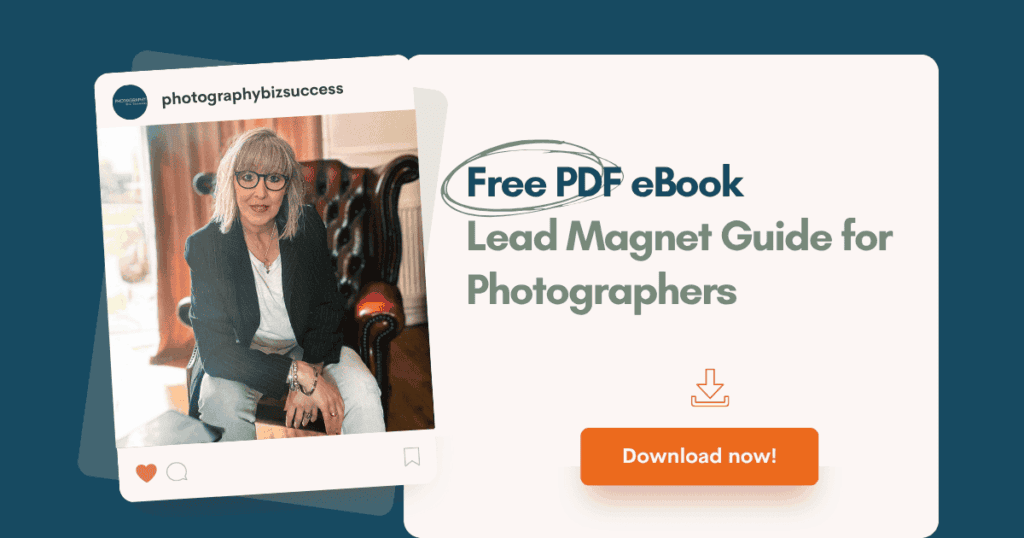
3. Make Your Preheader Text Work Harder
Your preheader (or preview text) is the line that appears just after your subject line in most inboxes, especially on mobile. It’s your second chance to catch someone’s attention.
Think of your subject line as the headline, and the preheader as the subheading.
Why it matters.
If you don’t set your preheader text manually, your email platform will pull the first line of your email, which is often something dull like:
“View this email in your browser.” That doesn’t inspire anyone to click.
But if you write it intentionally, your preheader can do a lot:
🤍 Add context
💙 Build curiosity
🧡 Reinforce your subject line
🤍 Or give a sneak peek at what’s inside
What makes a good preheader?
A great preheader complements the subject line without repeating it.
Here are a few examples for photographers:
- Subject: “Your mini session gallery is ready”Preheader: “Click to view, download and order your favourites.”
- Subject: “Want more bookings next month?”Preheader: “3 easy things you can do today to get noticed.”
- Subject: “I nearly cancelled the shoot…”Preheader: “Here’s what changed my mind (and what I learnt).”
- Subject: “Spring minis – 2 spots left!”Preheader: “Book now before they’re gone.”
How to edit it
Most platforms let you set preheader text when you create the email, it’s usually right next to where you write the subject line.
If you’re not using this box, now’s the time to start.
4. Use Personalisation to Make Every Email Feel Like a One-to-One Message
People are more likely to open emails that feel like they were written just for them. That’s what personalisation does. You ve seen those funny little brackets {{ vrst_name | strip | default: “there” }}, or wording that’s something similar, that’s what adds the personalisation.
It takes your message from “Dear subscriber” to “Hi Sarah, your family shoot gallery is ready” and is one of the easiest ways to increase email open rates.
Why personalisation works
It helps your emails stand out in a crowded inbox. When people see their own name, location, or booking info, they pause. They feel seen, and they’re more likely to open.
For photographers, this is a game-changer. You’re not a faceless business. You’re often part of your client’s most personal moments.
Weddings, newborns, first birthdays, milestone anniversaries, these aren’t “just photos.” They’re memories.
When your emails reflect that personal connection, your open rates will almost always improve.
Simple ways to personalise your emails
Most email tools let you use merge tags, small bits of code that insert specific details for each subscriber.
Here’s how you can use them:
🤍 First name in the subject line“Sarah, your gallery is ready”
💙 Personalised greeting“Hi Alex, thanks again for our shoot last week!”
🧡 Reference their session“Here’s a quick guide to help you prepare for your maternity photos next Friday”
🤍 Location-specific updates“Mini sessions in Bedfordshire, early access for local subscribers”
Personalisation beyond names
You can also personalise based on:
- Past bookings
- What type of photography they’re interested in
- Which lead magnet they signed up for
- Where they are in your workflow (inquiry, booking, delivery, etc.)
- Even small touches can make your emails feel more relevant, and relevant emails will increase email open rates.
5. Segment Your Audience to Send the Right Emails to the Right People
Not everyone on your email list is the same, and they shouldn’t all receive the same email. This is where segmenting becomes essential.
It’s the process of dividing your list into smaller groups based on specific characteristics or behaviours. And when you do this well, you’ll see a direct improvement in both your open rates and your click-through rates.
Why segmenting matters
Let’s say you run family and branding sessions. A new mum interested in newborn photography doesn’t need to hear about your latest personal branding offer.
And someone who downloaded your wedding planning guide probably isn’t looking for Christmas mini sessions.
When you tailor your email campaigns to match each group’s needs, you:
- Build stronger relationships
- Avoid overwhelming your subscribers
- Keep your list more engaged over time
- Increase the chance of getting replies, bookings, or sales
Examples of segments you could create to increase email open rates
You can start simple and build as you grow. For example:
- By interest – weddings, families, pets, branding, etc.
- By location – great for sending emails about mini session events or pop-ups
- By lead magnet – match your content to what they originally signed up for
- By past clients – send special offers or loyalty emails to repeat customers
- By activity – separate engaged readers from those who haven’t opened in a while
The more relevant your emails are, the more likely people are to open them. And that means a healthier, more profitable email list.
How segmentation supports growth
Photographers often ask how to grow their email list and keep it useful.
The answer? It’s not just about the number of subscribers, it’s about knowing who’s on your list and what they care about.
When someone signs up through your website or a lead magnet, think:
Where should they go next?
What would be most useful to send them?
The more your emails reflect your subscribers’ actual needs, the more effective every single email campaign becomes.
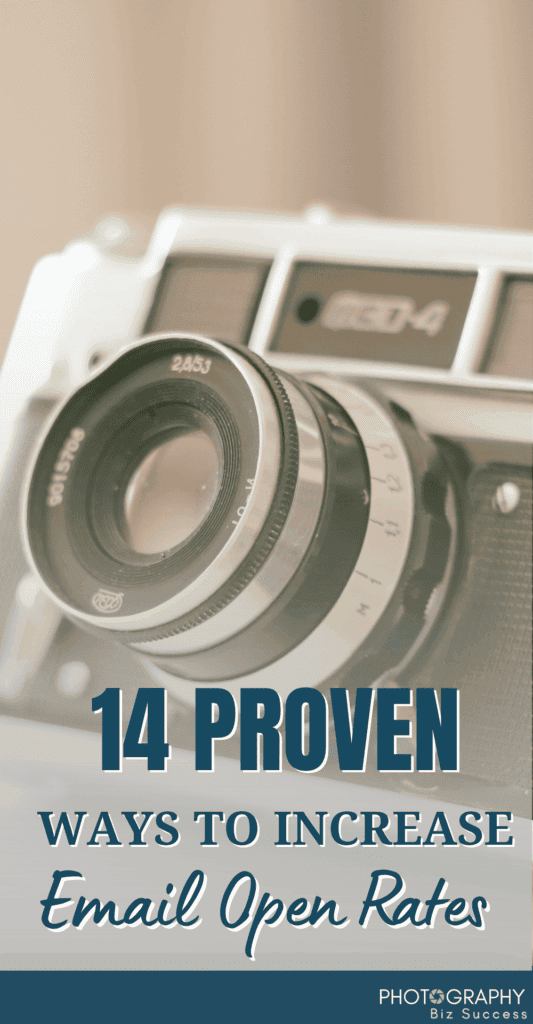
6. Deliver Quality Content That Your Subscribers Actually Want
Getting people to open your emails is just the beginning.
To keep them opening your emails regularly, you need to give them a reason to look forward to each one.
That’s where quality content comes in.
Your subscribers didn’t join your email list to be sold to every week.
They signed up because they’re interested in what you do, and they trust you to deliver something valuable.
What counts as “quality” content?
It’s content that is:
- Useful
- Relevant
- Easy to read
- And feels like it was written with them in mind.
When your emails consistently offer value, your open rates stay strong, and your click-through rates are more likely to grow too.
Examples for different photography niches
Here’s what “quality content” could look like in action:
Family Photographer
- “What to wear for your family photo session”
- “3 ways to help your kids feel relaxed during a shoot”
- “Our top locations for outdoor photos in [your area]”
Wedding Photographer
- “Planning tips from behind the lens; 5 moments couples always forget”
- “Real wedding: [Name + Name] at [Venue]”
- “What I’d do differently if I planned my own wedding again”
Personal Branding Photographer
- “What to bring to your branding session”
- “How to pose confidently when you feel awkward on camera”
- “Client spotlight: how [client] used their images on LinkedIn and Instagram”
Pet Photographer
- “Treats, toys & timing – how to prepare your dog for their photo shoot”
- “Why studio lights don’t faze most pets (and how we ease them in)”
- “5 pawsome shots from our latest pup portrait day”
These types of emails feel helpful, not salesy. And that keeps your audience connected to your work, even in quieter seasons.
Don’t just sell. Share.
A simple mindset shift: Every email is an opportunity to build trust. You can still promote your services, but wrap it in value.
For example:
“Here’s how I helped a local business update their team headshots, and how it boosted their website conversions.”
That’s not just selling a service, it’s sharing insight.
If you consistently provide content your audience wants to read, they’ll keep opening your emails, referring others, and booking with you when the time is right.
7. Choose the Best Time to Send Your Emails and increase email open rates.
You’ve crafted a great subject line, your content is spot on….. but if your email lands at the wrong time, it might never be seen.
Timing really does make a difference to increase email open rates.
While there’s no one-size-fits-all answer, certain patterns can help you get , better results especially when you’re sending email campaigns to clients across different locations.
When do people typically check emails?
For most audiences, the highest engagement times tend to be:
- Early morning (6–9am) – people often check emails on their phone before or during their commute
- Lunchtime (12–2pm) – a quick inbox scroll during their break
- Early evening (5–7pm) – after work, before switching off for the day.
But remember, your audience isn’t “everyone.” A busy mum with young children may have a completely different rhythm to a small business owner or a full-time professional. That’s why testing different send times is so important.
Use smart scheduling features to increase email open rates.
Most modern platforms (like MailerLite, Mailchimp, and Flodesk) let you schedule your emails in advance. But many go one step further, they allow you to send your emails based on the recipient’s local time zone.
So if you’re based in the UK but your email list includes people across Europe or even the US, you can make sure each person gets your email at the ideal time for them.
For example, you could:
- Schedule an email to hit inboxes at 7:30am local time
- Perfect for catching people on their way to work
- Increases the chances of your email being seen and opened while your subscriber is actively checking messages
Test and adjust
The only way to really know what works for your audience is to test.
Try sending a few emails at different times over a few weeks, and track your open rates and click-through rates.
Do more people open your emails first thing Monday? Or do mid-week lunchtime sends work better?
Once you know your audience’s habits, you can time your email campaigns to match, and see better results with the same content.
That’s everything for Part 1. You’ve now got a solid foundation, and in part 2, we’ll go even deeper to help you boost your email open rates with strategies you can put into action right away.
BONUS – FREE LEAD MAGNET GUIDE FOR PHOTOGRAPHERS
Click here to go straight to part 2.
Nicky x


